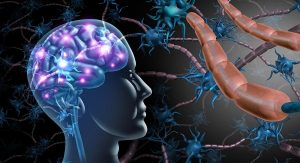Heart surgery can be stressful, but researchers may have found a way to reduce patients’ anxiety and postoperative pain — without any extra side effects.
A team from the Netherlands found that the simple act of listening to music around the time of surgery may help patients as they recover.
“This is a fascinating question for heart surgeons because we perform the most invasive procedures that require opening the chest, stopping the heart, using a heart-lung machine while we fix the heart, and then allowing the patient to return to life again,” said Dr. Harold Fernandez, a U.S. cardiac surgeon unconnected to the new study.
“Undoubtedly, there is a significant amount of both anxiety and pain associated with these procedures,” said Fernandez, who is chief of cardiovascular and thoracic surgery at Northwell Health’s Sandra Atlas Bass Heart Hospital in Manhasset, N.Y.
In the new research, published Jan. 25 in the online journal Open Heart, the Dutch team analyzed data from 16 studies looking at the effect of music on post-op care. The studies included almost 1,000 patients, and about 90% of the procedures involved coronary artery bypass grafts and/or heart valve replacement.
A majority of the time the type of music used was relaxing and did not have strong rhythms or percussion, the researchers noted. The choice of music varied; sometimes it was from the patients’ own playlists, but other times it was from preselected playlists or chosen by their doctor.
Instead of music, the comparison groups in the studies received a mix of other options, such as scheduled rest, breathing exercises, or headphones without music.
The researchers then used validated scales and scoring systems to measure patients’ anxiety and pain.
The analysis showed that listening to music did seem to significantly reduce patients’ anxiety and pain after major heart surgery. Several days of listening to music also reduced anxiety for up to eight days after surgery, according to the study.
The researchers stressed that even though the music therapy did seem to help ease discomfort, it didn’t have any big impact on patients’ use of opioid painkillers, length of hospital stay, time spent on mechanical ventilation, blood pressure, heart rate or breathing rate.
Still, unlike medications, music “has neither risks nor known side effects … [so] health care professionals should consider providing perioperative music for patients undergoing cardiac surgery,” the researchers said in a journal news release. The team was led by Ellaha Kakar, from the departments of surgery and neuroscience at Erasmus University Medical Center in Rotterdam.
For his part, Fernandez said the study is “very important for all of us to look for ways that can make the experience gentler for the patient, because this can potentially lead to better healing, and therefore improved results.”
He noted that the benefits from music appeared to set in quickly, and ” the effect is more pronounced when the patients select their own tunes.”
The analysis did have some limitations, Fernandez said, and more study may be needed. Still, he said, “I feel that we should start looking at implementing this as a complementary form of therapy for patients following heart surgery.”
More information
The American Heart Association offers a variety of heart health resources.
SOURCES: Harold A. Fernandez, MD, chief, cardiovascular and thoracic surgery, Northwell Health’s Sandra Atlas Bass Heart Hospital, Manhasset, N.Y.; Open Heart, news release, Jan. 25, 2021
Copyright © 2025 HealthDay. All rights reserved.

























